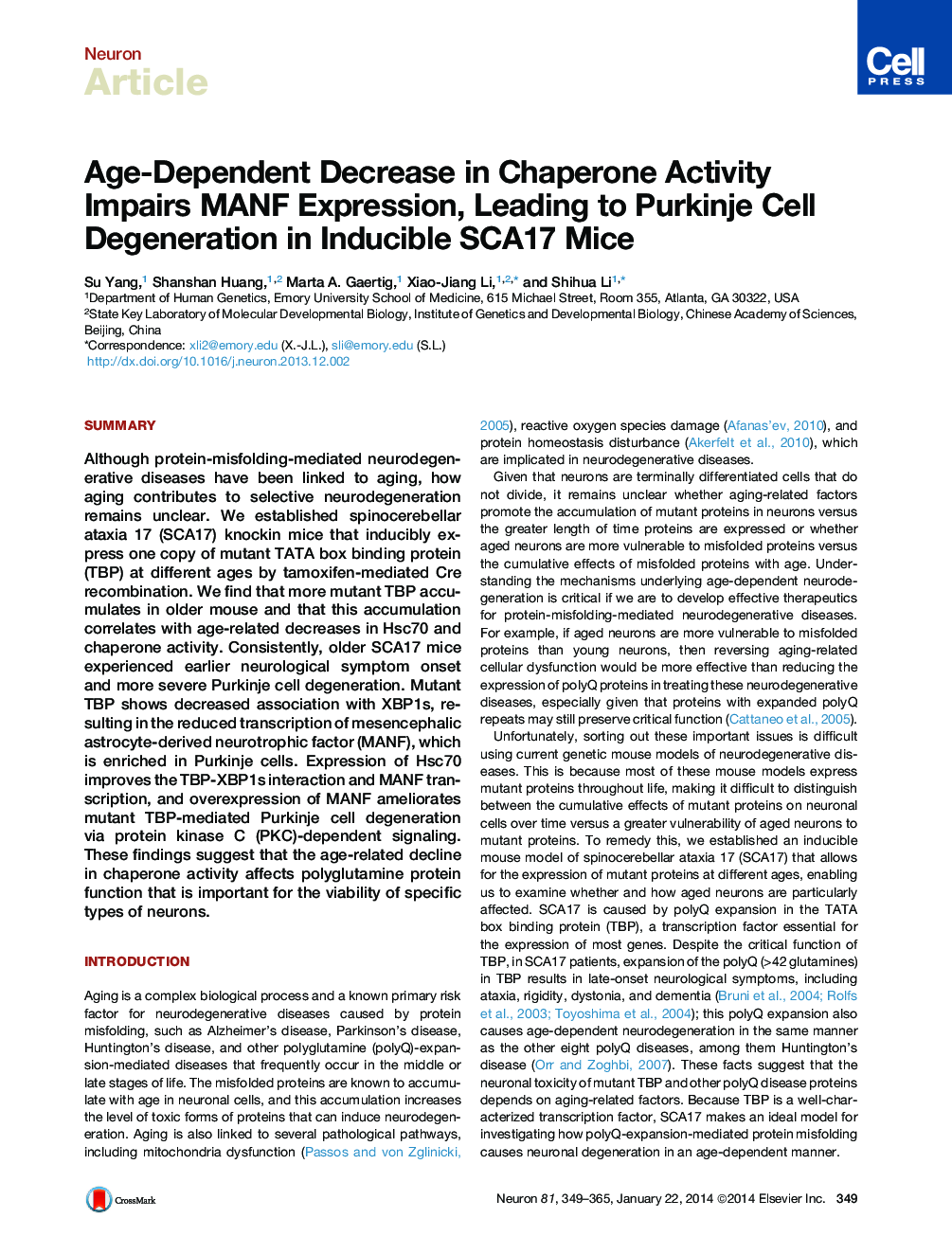| Article ID | Journal | Published Year | Pages | File Type |
|---|---|---|---|---|
| 4321199 | Neuron | 2014 | 17 Pages |
•Aging exacerbates polyglutamine neuropathology and decreases brain Hsc70•Mutant TBP impairs XBP1s-mediated MANF transcription•Hsc70 improves TBP-XBP1s interaction and MANF transcription•Overexpression of MANF alleviates SCA17 neuropathology through PKC signaling
SummaryAlthough protein-misfolding-mediated neurodegenerative diseases have been linked to aging, how aging contributes to selective neurodegeneration remains unclear. We established spinocerebellar ataxia 17 (SCA17) knockin mice that inducibly express one copy of mutant TATA box binding protein (TBP) at different ages by tamoxifen-mediated Cre recombination. We find that more mutant TBP accumulates in older mouse and that this accumulation correlates with age-related decreases in Hsc70 and chaperone activity. Consistently, older SCA17 mice experienced earlier neurological symptom onset and more severe Purkinje cell degeneration. Mutant TBP shows decreased association with XBP1s, resulting in the reduced transcription of mesencephalic astrocyte-derived neurotrophic factor (MANF), which is enriched in Purkinje cells. Expression of Hsc70 improves the TBP-XBP1s interaction and MANF transcription, and overexpression of MANF ameliorates mutant TBP-mediated Purkinje cell degeneration via protein kinase C (PKC)-dependent signaling. These findings suggest that the age-related decline in chaperone activity affects polyglutamine protein function that is important for the viability of specific types of neurons.
